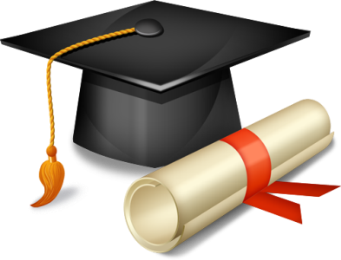Diploma in Computer Numeric Control Technology (CNC)
Technical/Vocational Institution : Datamine Technical Business School
Number of Years: 2
Click Here To Apply
Breaking News

The programme title is Diploma in Computer Numeric Control initialized as DCNC.
Computer numerical control (CNC) is the automation of machine tools by means of computers executing pre-programmed sequences of machine control commands which is in contrast to machines that are manually controlled by hand wheels or levers, or mechanically automated by cams alone.
In modern CNC systems, the design of a mechanical part and its manufacturing program is highly automated.
The part's mechanical dimensions are defined using computer-aided design (CAD) software,and then translated into manufacturing directives by computer-aided manufacturing (CAM) software. The resulting directives are transformed into the specific commands necessary for a particular machine to produce the component, and then loaded into the CNC machine.
Since any particular component might require the use of a number of different tools – drills, saws, etc. –modern machines often combine multiple tools into a single "cell" and in other installations, a number of different machines are used with an external controller and human or robotic operators that move the component from machine to machine. In either case, the series of steps needed to produce any part is highly automated and produces a part that closely matches the original CAD.
FIRST YEAR
SEMESTER ONE
DCN1101 Basic Measurement
DCN1102 Technical Drawing
DCN1103 Print Reading 1 (Multi-view Drawing)
DCN1104 Print Reading 2 (Sectional Drawings and Fasteners)
DCN1105 Precision Measurement Tools
DCN1106 Dimensional Gauging
DCN1107 Print Reading 3 (Geometric Dimensioning & Tolerancing)
DCN1108 Welding Preparation
DCN1109 Computer Skills For CNC
SEMESTER TWO
DCN 1201 Orientation Tolerance
DCN 1202 Form Tolerances
DCN 1203 Location Tolerances
DCN 1204 Machining Processes
DCN 1205 Drill Operation
DCN 1206 Internal Machining Processes
DCN 1207 Basic Welding
DCN 1208 Business Communication Skills
SECOND YEAR
SEMESTER I
DCN 2101 Milling Machine Operation
DCN 2102 Milling Production
DCN 2103 Turning Operation
DCN 2104 Turning Production
DCN 2105 Introduction To CNC Machining
DCN 2106 CNC Mill Operation
DCN 2107 Welder Adjustment
DCN 2108 Welded Joints
SECOND YEAR
SEMESTER II (ALL CORE COURSES)
DCN 2201 CNC Program Operation
DCN 2202 CNC Turning Operation
DCN 2203 CNC Grinding Operation
DCN 2204 CNC Machine Troubleshooting And Maintenance
DCN 2205 Introduction To SPC
DCN 2206 Control Charts
DCN 2207 Welding Analysis
DCN 2208 Group Project
Admission to the Diploma in Computer Numeric Control Technology (DCNC) shall be done in
accordance with the Minimum National entry requirements and also Datamine Technical Business
School admission procedures and policy which state as given below:
i. One must be a holder of the Uganda Advanced Certificate of Education (UACE) or equivalent
with at least a pass in Physics or Mathematics and two subsidiary passes and a minimum of five passes including mathematics and physics at O level. Technical drawing or industrial fine art background at O level is an added advantage.
ii. One must be a holder of Certificate in Machining and Metal Fabrication or its equivalent in a
CNC related Programme.
iii. Weighting of UACE Holders for Admission
The weighting of subjects for UACE Holders shall be as follows;
· Weight 3-Physics and Mathematics
· Weight 2-Fine art, and Technical drawing
· Weight 1- General Paper, metal work and Wood work.
· Weight 0.5- Any other relevant subjects
Chase your dreams in heels of your course. Know where this course is taking you by checking out the careers associated to it listed below
Hear and learn from those that did the course and what they have been able to do with the knowledge they acquired
Machining and Metal Fabrication have been the main pivot for all technological innovations and inventions worldwide and a key driver for the construction, and manufacturing industry. For as old as B.C Man has made use of metals of different types to come with shapes of all types and
these were to be used for the construction of all the Historical and Monumental items that we have either seen or read about.
During the industrial revolution, the man was yarning for better manufacturing technology and at this time a lot of machining was done rudimentary and much more with the help of human hands and energy applied to machines that used much of pullies and screws to perform work.
Electrically driven machines that made use of mortars to grind, drill and also mill metal later came into use and these, revolutionalised the machining industry. These same machines updates are still widely used even in the developed world.
In 1972 automatic machining was introduced first in America, and this made use of computer technology to Fully Automate the processes that were all once done conventionally. These new machines were the CNC machines.
These are machines that do metal cutting, milling, grinding, shaping among other actions, with very high precision and work at an impressive speed to produce multiple items that can look the same if that is the need. They can do better the same work that a sculptor and iron smelter
would do and in a very short time.
To Africa, specifically Uganda, the biggest hindrance to the adoption of CNC technology is the absence of a school for this specialized technology and that why most manufacturers with these machines have had to rely on expatriates.
Even though it’s true that these machines are expensive to acquire and to maintain, once the operators have been properly trained, a machine can last for years and years without mechanical breakdown.
Datamine Technical Business School seeks to bridge the skills gap that has for long existed between the manufacturers and the country graduates by establishing the first Formal CNC training Programme.
Kyambogo University
Bugema University
Ndejje University
St Francis Schools of Health Sciences
Did this page help you? Yes No Share Feedback